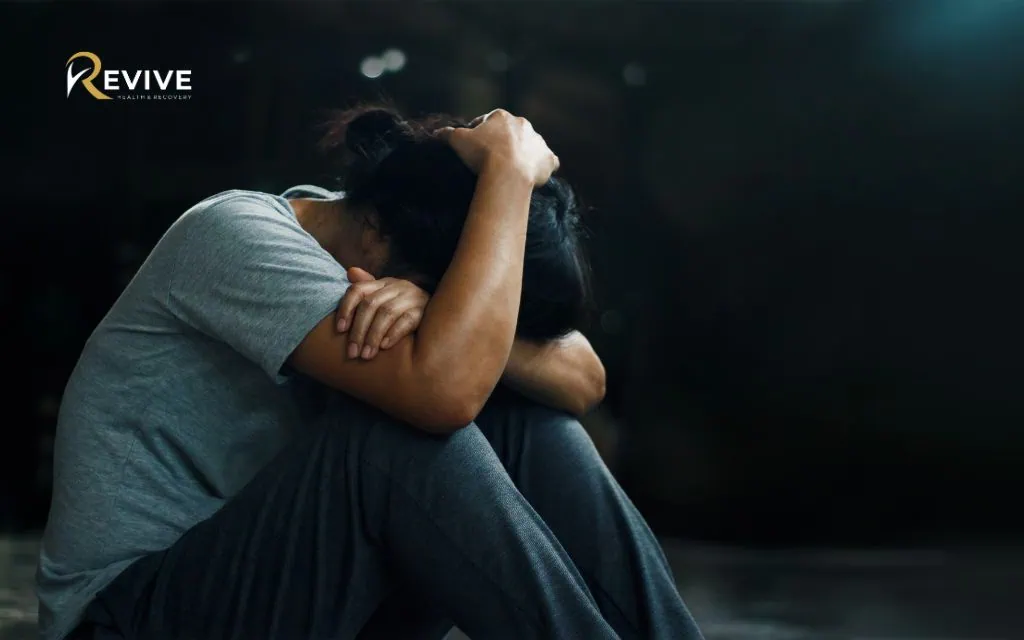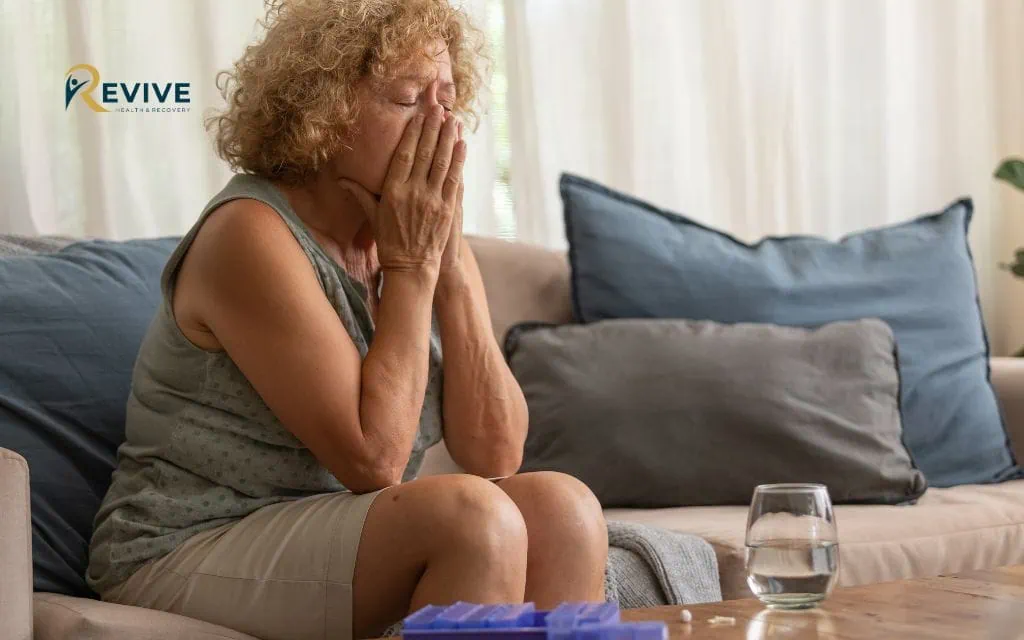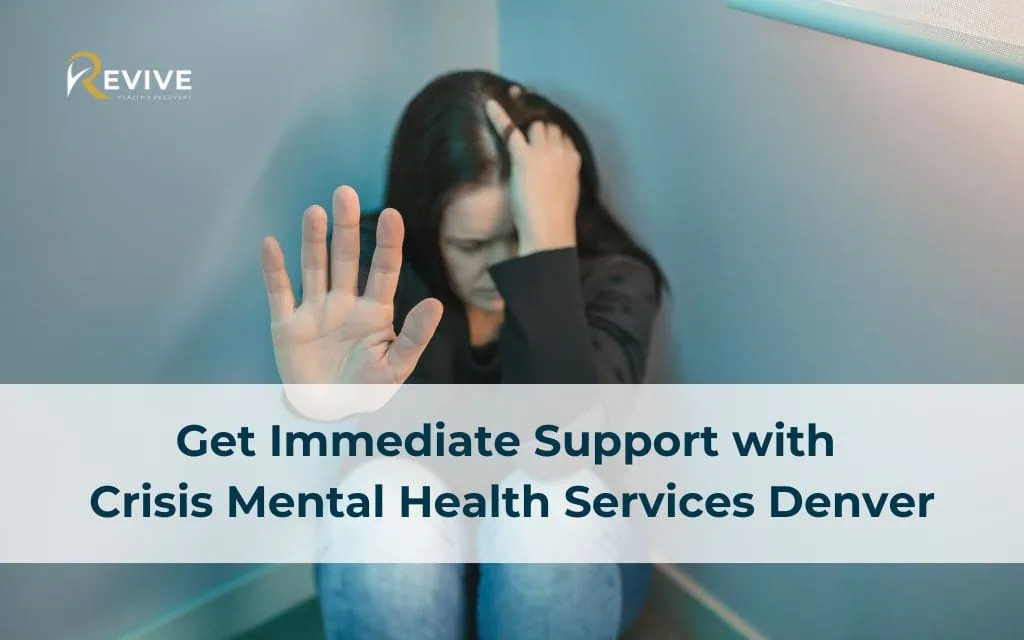A mental health crisis can happen to anyone at any time, requiring immediate professional support. Denver residents have access to a comprehensive network of crisis mental health services Denver designed to provide rapid response and compassionate care during these critical moments. Whether you’re experiencing thoughts of self-harm, intense anxiety, overwhelming depression, or any other mental health emergency, understanding the available resources can be life-saving.
This guide outlines Denver’s crisis mental health services, from the national 988 hotline to specialized local programs like STAR, providing clear information on when and how to access each service. For those experiencing mental health challenges or supporting loved ones through difficult times, knowing these resources can make the difference between prolonged suffering and finding a path to recovery.
Understanding Mental Health Crises in Denver
What Defines a Mental Health Crisis
A mental health crisis occurs when someone experiences intense emotional distress that overwhelms their ability to function. These emergencies demand immediate intervention to prevent harm and stabilize the situation.
Most crises involve sudden changes in behavior, thought patterns, or emotional state. You might notice intense anxiety, deep depression, psychosis, suicidal thoughts, or aggressive behavior. Crisis situations often develop when someone can’t access their usual coping mechanisms or support systems.
Seek immediate help from crisis mental health services Denver if you or someone you know experiences thoughts of self-harm, inability to perform basic self-care, disorientation, or extreme mood changes. Remember: reaching out isn’t a sign of weakness – it’s the first step toward recovery.
Recognizing Warning Signs
Mental health crises rarely happen without warning signs. Pay attention to:
- Dramatic shifts in mood, sleep, or appetite
- Increasing isolation or withdrawal from activities
- Expressions of hopelessness or feeling trapped
- Giving away possessions or talking about death
- Increased substance use to cope with emotions
- Risky, impulsive, or aggressive behavior
Risk factors that increase vulnerability include recent trauma, history of mental illness, substance abuse, lack of social support, and major life changes. The severity of a crisis depends on the person’s immediate safety risk, level of functioning, and available support resources.
At Revive Health Recovery, we emphasize early intervention. If you notice these warning signs in yourself or someone else, don’t wait until the situation escalates – Call our team at (303) 268-4655 for guidance.

Immediate Crisis Response Options in Denver
988 Colorado Mental Health Line
Denver’s crisis response system connects seamlessly with the national 988 Suicide and Crisis Lifeline, providing 24/7/365 support. When you call 988, you’ll reach trained mental health professionals who can:
- Provide immediate emotional support
- Help assess the situation’s severity
- Connect you with local resources
- Dispatch mobile crisis teams when necessary
- Arrange follow-up care
The 988 system offers text and chat options for those who prefer non-verbal communication. Services are available in English and Spanish, with translation services for over 150 additional languages. This innovative system represents a significant advancement in making crisis care accessible to everyone in Denver.
Walk-In Crisis Centers
Denver offers several walk-in crisis centers where you can receive immediate face-to-face support without an appointment.
WellPower Walk-In Center (formerly Mental Health Center of Denver)
- Location: 4353 E. Colfax Ave., Denver
- Open 24/7
- Services: Immediate assessment, crisis intervention, short-term residential services
AllHealth Network Crisis Center
- Location: 6509 S. Santa Fe Drive, Littleton
- Open 24/7
- Services: Crisis evaluation, short-term counseling, connection to ongoing care
Revive Health Recovery
Location: 4500 W Colfax Ave, Denver, CO 80204
Open: 24/7 Phone Support, Walk-in Hours: Mon–Fri, 9:00 AM – 6:00 PM
Phone: (303) 957-2801
Email: info@revivehealthrecovery.com
Website: revivehealthrecovery.com
Services:
- Mental health crisis evaluations
- Dual diagnosis assessments
- Substance use disorder consultations
- Trauma & PTSD support
- Immediate referral to outpatient and intensive treatment programs
During your visit, expect a thorough evaluation of your needs, immediate stabilization support, and a personalized safety plan. These centers create a welcoming environment where you can receive compassionate care during difficult moments.
Mobile Crisis Response Teams
Denver’s mobile crisis teams bring professional support directly to people experiencing mental health emergencies. These teams include mental health clinicians, peer specialists, and sometimes paramedics who can:
- Respond to homes, schools, workplaces, or public locations
- De-escalate crisis situations
- Provide on-site assessment and intervention
- Connect individuals with appropriate resources
- Reduce unnecessary emergency room visits and police involvement
To request a mobile crisis team, call the Colorado Crisis Services line at 1-844-493-8255 or text “TALK” to 38255. Mobile teams typically respond within an hour and stay until the situation stabilizes, often providing follow-up care coordination in the days afterward.
Specialized Crisis Programs in Denver
Support Team Assisted Response (STAR) Program
Denver’s STAR Program offers a groundbreaking approach to mental health crises by providing an alternative to traditional police response. This program pairs mental health professionals with paramedics to address low-risk situations involving mental health, substance use, or poverty.
STAR teams operate in specially marked vans and handle non-violent situations such as:
- Mental health episodes
- Substance use issues
- Welfare checks
- People experiencing homelessness needing support
Since its launch, STAR has responded to over 8,000 calls that would have otherwise gone to police, with 41% of individuals served being referred to formal mental health treatment. No arrests have been made during STAR responses, demonstrating its effectiveness as a compassionate alternative.
To request STAR assistance, call 911 or the non-emergency line (720-913-2000) and specifically ask for STAR if appropriate.
Behavioral Health Solutions Center
The Behavioral Health Solutions Center serves as Denver’s specialized 24/7 first responder drop-off location for behavioral health crises. This unique facility provides:
- Crisis stabilization services (up to 5 days)
- Short-term transitional shelter (up to 30 days)
- Case management and care coordination
- Peer support and recovery coaching
- Connection to community resources
The center accepts referrals from law enforcement, paramedics, and mobile crisis teams, creating a seamless pathway from crisis to care. Its comprehensive approach addresses immediate needs while developing plans for long-term stability and community integration.
Hospital-Based Psychiatric Emergency Services
For severe mental health crises requiring medical intervention, Denver offers several hospital-based psychiatric emergency services.
Denver Health Psychiatric Emergency Services
- 24/7 emergency psychiatric care
- Comprehensive evaluation and treatment
- Inpatient admission when necessary
- Medication management
Other options include UCHealth University of Colorado Hospital and Children’s Hospital Colorado for youth in crisis. Hospitalization may be necessary when someone presents an immediate danger to themselves or others, requires medical stabilization, or needs intensive treatment that can’t be provided in outpatient settings.
During admission, patients receive thorough assessment, crisis stabilization, and treatment planning. Colorado law protects patient rights during psychiatric holds, ensuring appropriate care and due process.

Creating a Personal Crisis Plan
Developing a Prevention Strategy
The best way to handle a crisis is to prevent it whenever possible. At Revive Health Recovery, we help our clients develop personalized prevention strategies that include:
- Identifying specific triggers (situations, relationships, or stressors)
- Building effective coping skills through therapy and practice
- Creating a reliable support network of professionals and loved ones
- Maintaining wellness through consistent sleep, nutrition, medication management, and stress reduction
These preventive measures significantly reduce crisis episodes and build resilience. Our therapists work with clients to recognize early warning signs and implement intervention strategies before situations escalate.
Preparing a Crisis Action Plan
Everyone should have a crisis action plan – whether you have a mental health condition or not. A comprehensive plan includes:
- Emergency contacts (therapist, psychiatrist, trusted friends/family)
- Local crisis resources with phone numbers
- Step-by-step actions to take during different types of distress
- Comfort items and coping strategies that help during difficult moments
- Medication information and healthcare directives
Share this plan with trusted support people and keep it easily accessible. At Revive Health Recovery, we help clients develop and regularly update these plans as part of our comprehensive treatment approach.
Post-Crisis Support and Recovery
Transition to Ongoing Treatment
Crisis intervention provides immediate stabilization, but recovery requires ongoing support. The transition from crisis care to long-term treatment involves:
- Thorough assessment of needs and treatment goals
- Matching with appropriate level of care (outpatient, intensive outpatient, partial hospitalization)
- Addressing practical barriers like transportation and scheduling
- Integrating family support when appropriate
Finding the right provider makes a significant difference in recovery outcomes. At Revive Health Recovery, we specialize in creating seamless transitions from crisis to recovery. Our team coordinates with Denver’s crisis services to ensure continuity of care for clients entering our programs.
Insurance coverage for mental health treatment has improved significantly under parity laws, but navigating benefits can still be challenging. Our staff works directly with insurance companies to maximize coverage and explore alternative funding when needed.

Supporting a Loved One After Crisis
Supporting a family member after a mental health crisis requires education, patience, and self-care. Helpful approaches include:
- Learning about their specific condition and treatment plan
- Creating a calm, predictable environment
- Recognizing signs of returning distress
- Encouraging medication adherence and therapy attendance
- Setting appropriate boundaries
Denver offers several family education programs, including NAMI Family-to-Family and WellPower’s family support services. These resources help families understand mental illness and develop effective support strategies.
At Revive Health Recovery, we involve families throughout the treatment process, providing education, support groups, and family therapy. We know that recovery strengthens when the entire support system works together.
FAQs About Crisis Mental Health Services Denver
What qualifies as a mental health crisis?
A mental health crisis is any situation where a person’s behavior puts them or others at risk of harm, or prevents them from functioning effectively. Signs include suicidal thoughts, inability to perform daily tasks, extreme mood changes, or dangerous behaviors.
How quickly can I get help during a mental health emergency in Denver?
Denver offers immediate help through multiple channels. The 988 hotline provides instant phone support, while mobile crisis teams typically respond within an hour. Walk-in centers offer immediate assistance without appointments.
Is there a cost for using crisis mental health services in Denver?
Most crisis services in Denver are provided regardless of ability to pay. The 988 line and Colorado Crisis Services are free. Hospital-based services may involve costs, though emergency psychiatric care must be provided regardless of insurance status.
What’s the difference between calling 911 and the crisis line during a mental health emergency?
The 988 crisis line connects you with trained mental health specialists, while 911 dispatches emergency medical services or police. For mental health crises without immediate danger, 988 is often more appropriate as it provides specialized mental health support.
Can I access crisis mental health services for someone else?
Yes, Denver’s crisis services can help you support someone else in crisis. You can call the 988 line for guidance, request a welfare check through mobile crisis teams, or learn how to bring someone to a walk-in center for assessment.
Why Choose Revive Health Recovery for Mental Health Treatment
Comprehensive Mental Health Services
Revive Health Recovery offers specialized treatment for a wide range of mental health conditions, including:
- Depression and anxiety disorders
- Bipolar disorder and schizophrenia
- Post-traumatic stress disorder
- Personality disorders
- Co-occurring substance use disorders
Our trauma-informed approach recognizes that many mental health challenges stem from past traumatic experiences. We address these underlying issues while building new coping skills and resilience.
Our dual diagnosis expertise allows us to effectively treat individuals with both mental health and substance use disorders—a common combination that requires specialized care. Each client receives a personalized recovery plan that addresses their unique needs, strengths, and goals.
Our Unique Approach to Mental Wellness
At Revive Health Recovery, we embrace a holistic treatment philosophy that considers the whole person—mind, body, and spirit. Our evidence-based therapeutic modalities include:
- Cognitive Behavioral Therapy (CBT)
- Dialectical Behavior Therapy (DBT)
- Motivational Interviewing
- Trauma-Focused CBT
- Group therapy and peer support
Beyond symptom management, we emphasize life skills development that supports lasting recovery. Our programs help clients build practical skills in areas like communication, emotional regulation, problem-solving, and stress management.
Family involvement forms a cornerstone of our approach. We provide education, therapy, and support for family members, recognizing that healing happens within a supportive community.
The Revive Health Recovery Difference
What sets Revive Health Recovery apart is our team of experienced, compassionate professionals who truly understand the recovery journey. Many of our staff members have personal experience with mental health challenges, bringing authentic empathy to their work.
We provide continuous care coordination, ensuring that clients transition smoothly between levels of care as their needs change. Our comfortable, healing environment in Denver creates a sense of safety and belonging essential for recovery.
Our commitment to excellence shows in our long-term recovery success rates. We track outcomes carefully and continuously refine our programs to achieve the best possible results for our clients.
Five Reasons to Choose Revive Health Recovery
- Specialized mental health treatment programs tailored to address specific conditions with targeted interventions
- Dual diagnosis capability for complex cases involving both mental health and substance use challenges
- Individualized care plans that adapt to changing needs throughout the recovery journey
- Comprehensive aftercare and relapse prevention strategies that support lasting wellness
- Strong community integration and support resources that help clients rebuild fulfilling lives
Time to Take the First Step
Mental health crises require immediate, compassionate, and skilled response, and Denver offers a robust network of services to meet these critical needs. From the convenience of the 988 hotline to specialized programs like STAR, residents have multiple pathways to receive help during difficult moments.
However, crisis intervention is just the beginning of the mental health recovery journey. For comprehensive treatment that addresses underlying issues and builds lasting wellness, Revive Health Recovery offers personalized mental health services that complement crisis care.
Our Denver Inner Peace Guidance team of experts is ready to help you or your loved one transition from crisis to recovery with dignity and hope. Don’t wait for another crisis to occur – contact Revive Health Recovery today at (303) 268-4655 or visit our welcoming facility at 1427 S Federal Blvd, Denver, CO 80219.
Your journey toward mental wellness begins with a single call, and we’re here to support you every step of the way.
Contact Information: Revive Health Recovery Address: 1427 S Federal Blvd, Denver, CO 80219 Email: contact@revivehealthrecovery.com Call Us – Available 24/7: (303) 268-4655



